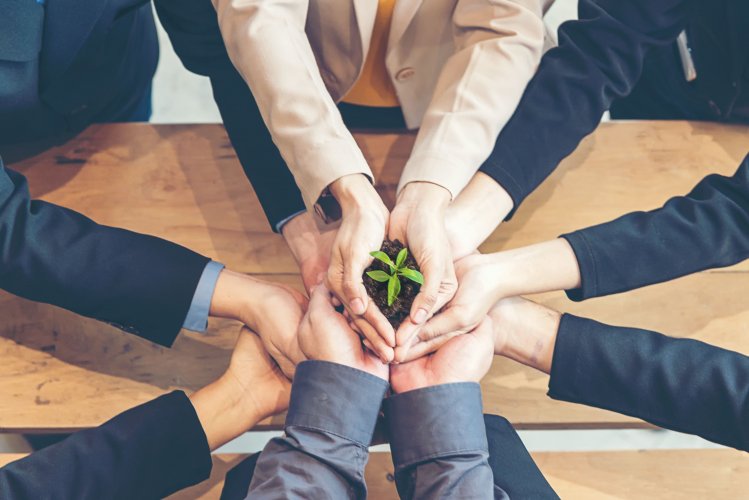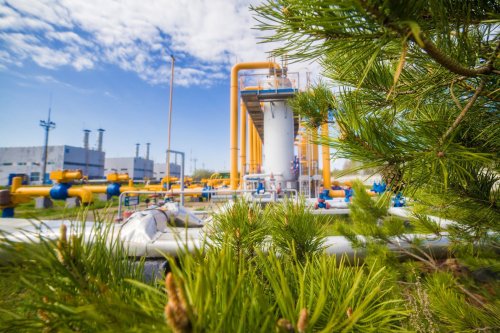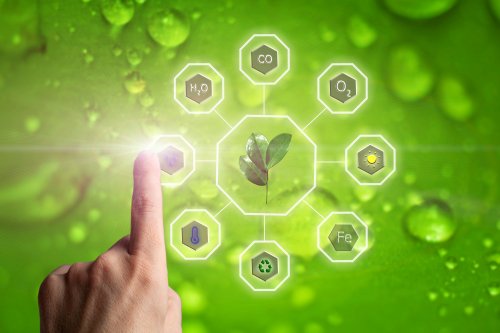European Science and Technology Cooperation (COST) develops and funds initiatives that focus on key sectors of society to help create a sustainable Europe by 2030.
Achieving the goals of the Green Agreement and supporting the UN Agenda 2030 with its 17 sustainable development goals requires a radical transformation of many aspects of society, according to Innovation NVS Network.
Support for the European Green Agreement includes the transition to a low-carbon, climate-neutral, resource-efficient and biodiversity economy.
COST is a financial organization for the creation of research networks called Cost Actions. These networks allow scientists from all over Europe to collaborate and thus create advances in research and development and innovation.
COST has received funding from the EU under various research and innovation framework programs, such as Horizon 2020 and Horizon Europe since 1971.
COST Action Conserveplants ecosystem conservation
Although plants are an integral part of ecosystems, society lacks knowledge about the rarest and most vulnerable species and their conservation status. Climate change and rural development can lead to rapid changes in natural habitats, leading to accelerated depletion of species and biodiversity.
The initiative (CA18201, an integrated approach to 21st century endangered plant conservation) works to improve plant conservation in Europe by building a network of scientists and other stakeholders, including plant taxonomists, environmentalists, conservationists, biologists and social scientists.
The head of the initiative, Dr Živa Fischer from the University of Primorska in Slovenia, explained that the aim was to increase knowledge about endangered plants through various aspects, including pollinator problems, seed germination and specific biology.
"The network has a broad view of conservation with a focus on herbaceous flowering plants in Europe. The biology of some common plant species is still poorly understood, so we need to identify critical factors that put certain plants on the verge of extinction," said Dr. Fischer. , - "The initiative is working to harmonize conservation protocols across Europe and update the methodologies that different authorities use to identify their" red lists "- the most endangered species. This is an area of great disagreement in Europe."
COST Action WECANET: accelerate the transition to carbon-free energy
The transition to zero-carbon energy sources is an important element in achieving a sustainable Europe. Although wind and solar technology have made significant strides and are widely used in Europe, the potential of other energy resources, such as wave energy, has not yet been exploited.
COST Action WECANet (CA17105 - European Network for Marine Renewable Energy) aims to facilitate the large-scale deployment of wave energy converters (WEC).
Dr Vicki Stratigaki of the University of Ghent in Belgium, who is chairing the initiative, explained that a large-scale deployment of marine renewable energy technologies requires an interdisciplinary approach. The initiative brings together a variety of experiences related to the environmental, social and economic aspects of offshore energy projects.
"The main issue is to increase the confidence of potential investors by reducing non-technological risks and associated uncertainties. Significant bottlenecks, such as installation methods and procedures, need to be addressed. Array development is key to achieving optimal installation size attractive to the energy sector." added Dr. Stratigaki.
COST Action EuroWeb: green manufacturing sectors
The COST Action EuroWeb (CA19131 - Europe through Textiles: A Network of Integrated and Interdisciplinary Humanities) initiative examines the practices of the past to make the textile sector more sustainable. It is headed by Dr. Agata Ulanowska from the University of Warsaw.
The initiative brings together scholars from the humanities, including fashion, art and design, to share their expertise in environmental textiles.
"Textiles act as a prism to explore and understand the economic, social and cultural competencies of societies in the past. Innovations in textile production have been central to many industrial revolutions that have profoundly changed society," said Dr. Ulanowska.
The campaign adheres to such aspects as the use and reuse of textiles in different contexts, the use of raw materials, historical technological and organizational innovations and the symbolic significance of textiles.
"In the past, a number of fibers were used in textile production. For example, nettles and tree bark, using methods that may not have harmed the wood. We need to consider these strategies now," said Dr. Ulanovska.
COST Action RNYN: upholding sustainable practices
The paper noted that in order to achieve a more sustainable Europe by 2030, people must be at the forefront to share and collaborate with and share ideas with sustainable practice with the younger generation, and the path to a sustainable society must be inclusive.
The COST - COST Action RNYN (CA18213 - Rural NEET Youth Network: Modeling the Risks Underlying the Social Exclusion of Rural NEETs) examines the factors that affect young, rural NEETs (people not in employment or education) and how their inclusion can contribute to the sustainable development of Europe's rural areas.
Sustainable agriculture is a key element of the Green Agreement for a sustainable Europe. The aim of the initiative is to help combine the development of society with the Green Agreement.
As reported EcoPoliticа before, The European Commission has presented a new package suggestions for circular economy.





